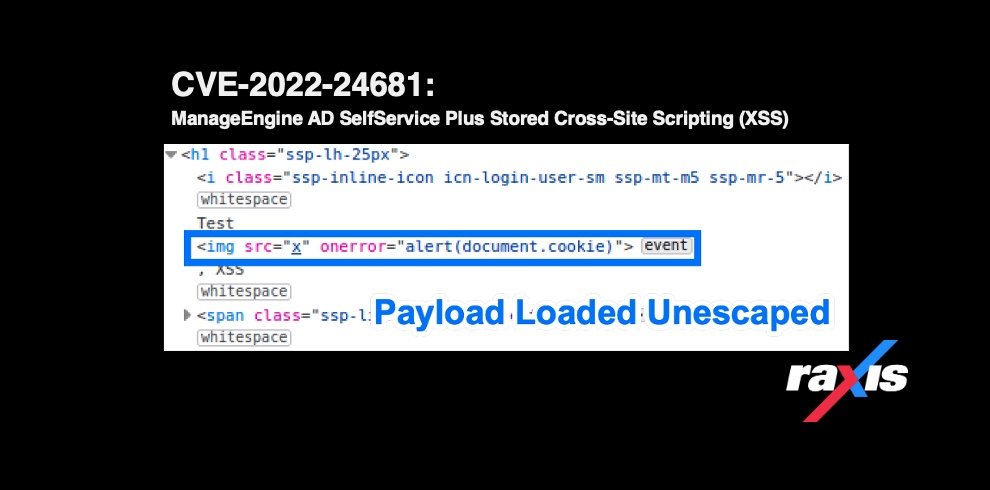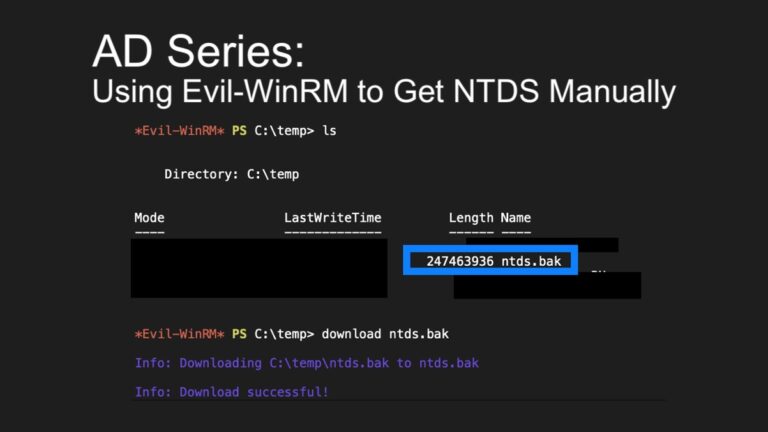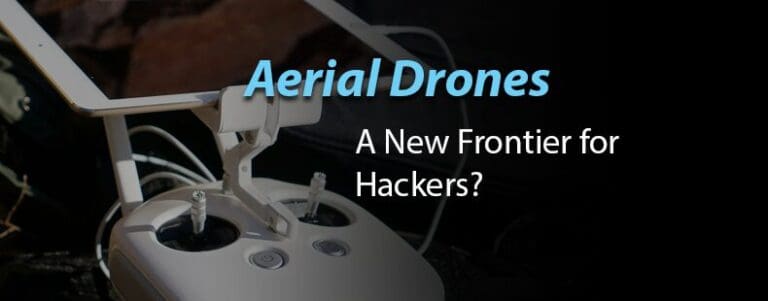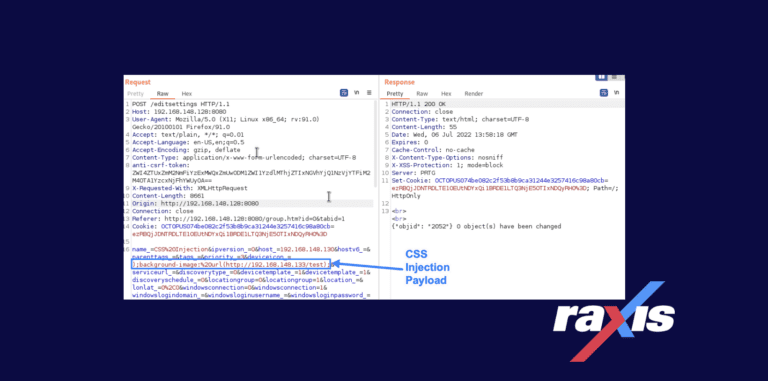CVE-2022-24681: ManageEngine AD SelfService Plus Stored Cross-Site Scripting (XSS)
I’m Matt Dunn, a lead penetration tester here at Raxis. Recently, I discovered a stored Cross-Site Scripting vulnerability in Zoho’s ManageEngine AD SelfService Plus.
Summary
The vulnerability exists in the /accounts/authVerify page, which is used for the forgot password, change password, and unlock account functionalities.
Proof of Concept
The vulnerability can be triggered by inserting html content, specifically tags that support JavaScript, into the first or last name of an Active Directory user. The following was inserted as a proof of concept to reflect the user’s cookie in an alert box:
<img src=x onerror=”alert(document.cookie)”/>An example of this in the Last Name field of one such user is shown here:
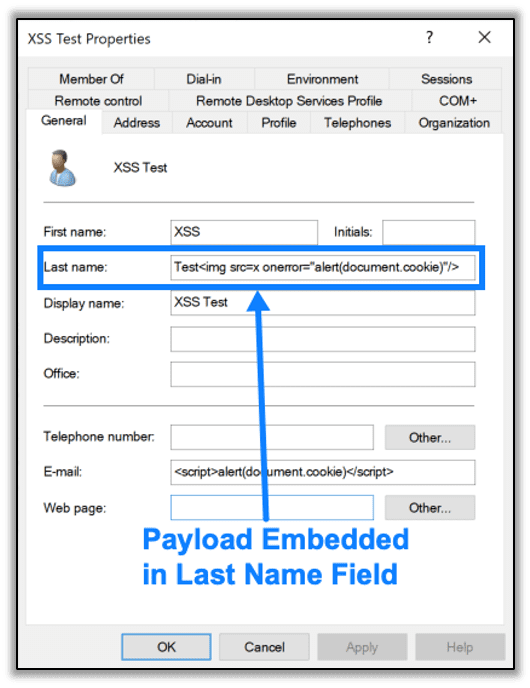
The next time that user forgets, attempts to change, or is locked out of their account and they load the authVerify page, their name is presented without being sanitized. The unescaped HTML as loaded can be seen in Figure 2:

After the user attempts to reset their password, the malicious content is executed, as shown in Figure 3:
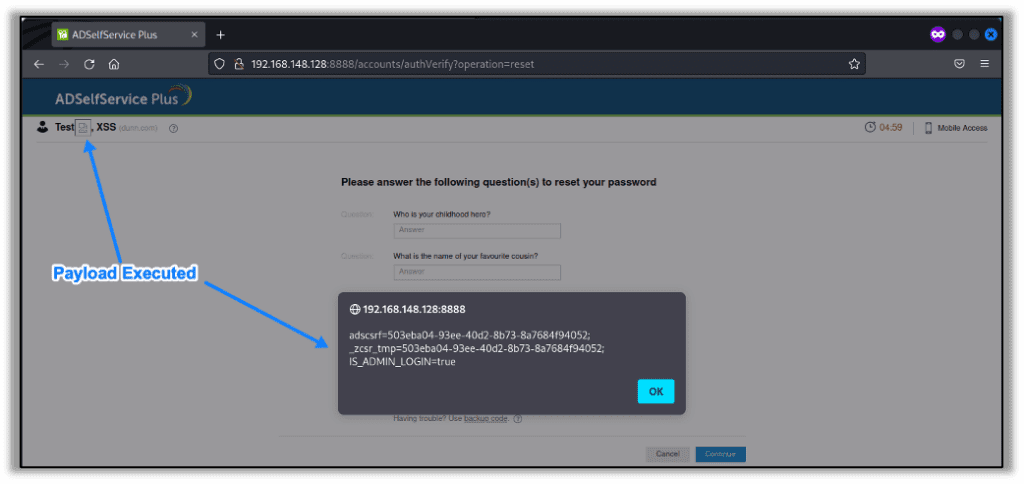
If the user must change their password on login, the malicious content is executed, as shown in Figure 4:
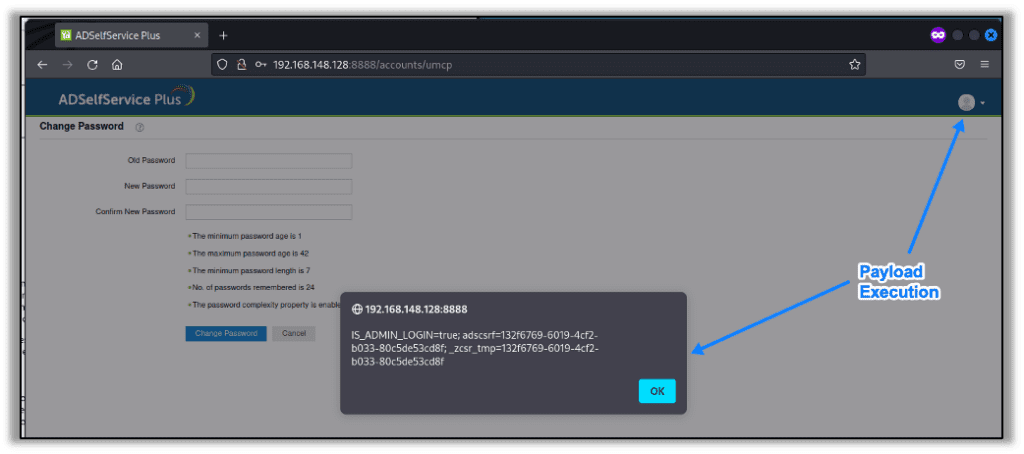
If the user attempts to unlock their account, the malicious content is executed, as shown in Figure 5:
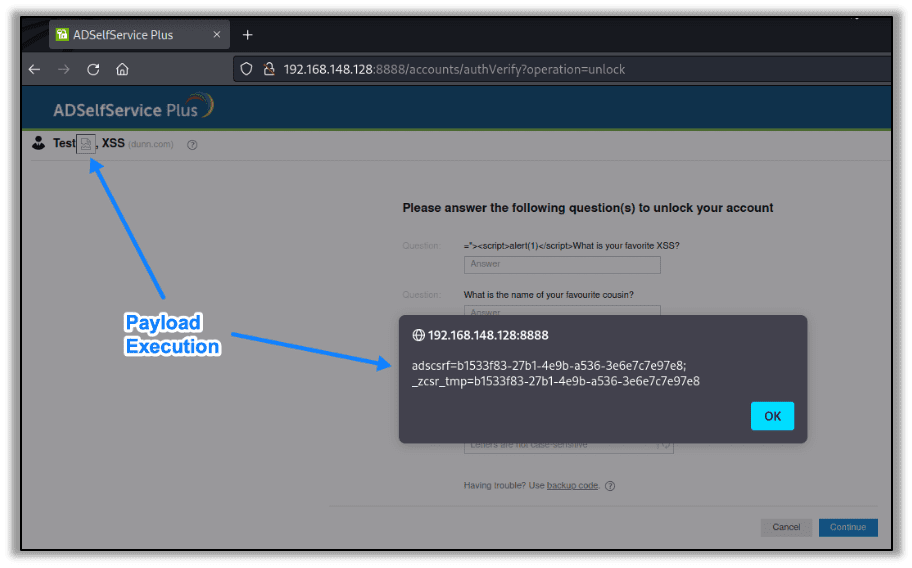
Affected Versions
Raxis discovered this vulnerability on Manage Engine AD SelfService Plus 6.1 Build 6119.
Remediation
Upgrade ManageEngine AD SelfService Plus to Version 6.1 Build 6121 or later immediately:
- Download Link – https://www.manageengine.com/products/self-service-password/download.html
- Release Notes – https://www.manageengine.com/products/self-service-password/release-notes.html#6121
Disclosure Timeline
- January 22, 2022 – Vulnerability reported to Zoho
- January 22, 2022 – Zoho begins investigation into report
- February 9, 2022 – CVE-2022-24681 is assigned to this vulnerability
- March 7, 2022 – Zoho releases fixed version 6.1 Build 6121
CVE Links
- Mitre CVE – https://cve.mitre.org/cgi-bin/cvename.cgi?name=CVE-2022-24681
- NVD – https://nvd.nist.gov/vuln/detail/CVE-2022-24681
